In an anonymous poll, 100% of the golfers who tried my golf fitness program, "Lift Heavy, Swing Fast," lowered their scores.
This isn’t surprising. Not to boast about my program, but it's no secret that every top professional in the game follows a training program. If it didn’t improve their performance, they wouldn’t be doing it.
Since we all know the importance of training, the next question is: how do you balance workouts with playing or practicing?
You can take a cue from the pros, but remember, their lives are very different from ours. Walking a course and swinging a club hundreds of times a day is something they are conditioned to do. Most of us, sitting at a desk for 8 hours, aren’t.
That said, even the pros who are playing 4+ rounds a week still train multiple days a week. They plan smartly. The athletes I know tend to schedule their tougher workouts early in the week, tapering down as a tournament approaches. Even on tournament days, they don’t skip workouts—they just adjust. This can range from cardio to heavy lifting or explosive plyometrics, but rarely just stretching.
What can the average golfer take from this? Honestly, not much. You don’t need to front-load your week like a pro prepping for a four-day tournament with travel. You don’t have a personal trainer or chef. What you need is to manage your energy and recovery.
Here’s how:
I always recommend my athletes stick to their usual workout routine leading up to heavy play. If you follow a well-structured program that doesn’t overtax your body, you should be able to play any day. If time is tight, reduce your workout days from five to two or three. You can still see great results.
On playing days, experiment with what works for you. Don’t try new “golfy” exercises from social media right before a round—you’ll probably play poorly. Stick with your regular routine. If you're scheduled to work out that day, either do the full session or scale it back. If you prefer something lighter, try some plyometrics or a single heavy lift to activate your central nervous system. For example, I’ve seen Brooks Koepka bench 275 pounds just hours before his tee time.
It’s all about trial and error, but there’s one key factor you can’t ignore:
If you’re playing a lot of golf and working out multiple times a week, along with handling the rest of life’s responsibilities, your nutrition and recovery must be dialed in. Don’t expect results if you're eating poorly and not getting enough sleep. That’s a whole topic in itself, but worth mentioning.
Final thought—golf is unpredictable. You can feel great and play poorly or feel terrible and play great. So, when dialing in a routine, give it a few tries on less important rounds to see what works best for you.








